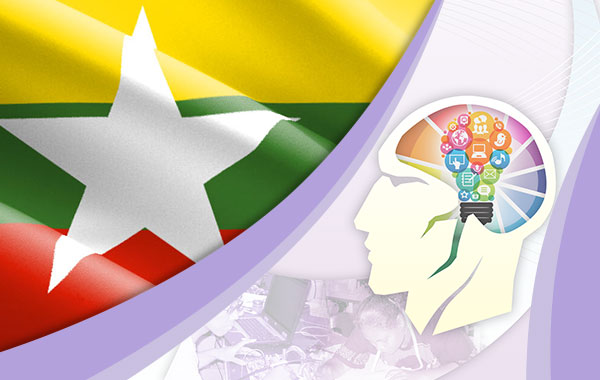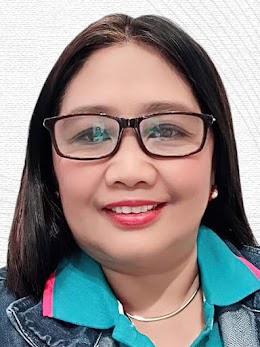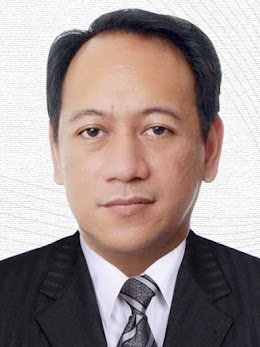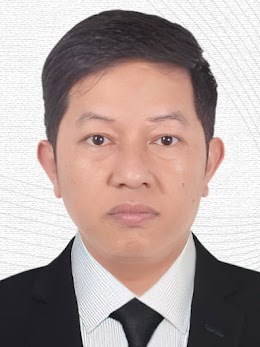
DATE: May 30 - June 3, 2022 |
PARTNER ORGANIZATION: Department of Technical and Vocational Education and Training, Ministry of Science and Technology, Myanmar |
PARTICIPANTS' PROFILE: The 25 participants will come from the education sector of Myanmar working as policy makers, TVET manager, principal, trainers and curriculum developers. |
The COVID 19 pandemic, 4IR technologies, and the changing labour market for the future of work provided an impetus for occupational restructuring and higher skills requirements for the country’s workforce. Competency-based training (CBT), the leading paradigm for technological innovations, emphasizes on the development of flexible, multi-skilled and world-class workforce that will address the ever-changing national and international labour market systems.
Since the 1970’s, many countries have begun to modernize their TVET system using the competencies focus to link the education and training system and match the quantity and quality requirements for manpower in industry. The ASEAN countries have come up with a regional qualifications framework, the ASEAN Qualifications Referencing Framework (AQRF) with the objective of having a single labour market for the ASEAN region with quality workforce reputation thereby attracting more investors and supporting decent work for workers.
The situation calls for a basis for mutual recognition of formal and informal learning and eventually lead to the free flow of skilled labour within the region. The Regional Model for Competency Standards (RMCS) promulgated by the ILO/APSDEP can be used as a regional benchmark for developing countries for the mutual recognition of skills.
Myanmar is laden with big challenges to strengthen its TVET system to cope with the AQRF standards specifically curriculum development and implementation. Therefore, this training programme provides a starting point in how to strengthen a new breed of curriculum developers to address the mentioned needs, trends and issues.
Hopefully, the sharing or experiences and expertise will be fruitful in providing the basic philosophies, standards and mechanics in the development of a modern curriculum that ensures that results are comparable to international standards and respond to industry requirements.
The main objective of the program is to facilitate an in-depth understanding and develop skills on the development of a modern curriculum. The specific objectives are to:
- Demonstrate a basic understanding of the nature and context of CBT - its philosophical origins, framework, advantages and limitations; and explain issues and trends in its implementation
- Identify occupations and develop competency standards of skills requirements related to 4IR, post-COVID 19 and future of work
- Determine and design appropriate structure and content of competency-based training programmes
- Prepare competency-based curriculum framework and learning tools such as learner guides, job sheets and session plans
The expected outcome of this intensive and highly interactive in-country program is the strengthened capacity of TVET practitioners to design curriculum framework
The expected outputs are:
- With the implementation of the plan and structured series of learning experiences, the participants will design curriculum framework. To be drafted and presented by the participants (in 4-5 groups) following simple steps as instructed.
- Trained TVET Officials. About 25 participants increased their awareness on the process of curriculum development
- Learning Materials. The resource speakers develop theme papers, presentations, activity worksheets and other supplementary /materials for use during the in-country program, and similar future programs.
- Special Lecture: Skills Development for the Post-COVID Digital Economy. This special lecture will contribute to ongoing discussions on how the pandemic and emerging technologies are transforming job markets, determining new skills sets requirements and driving the digital economy.
Theme Papers
- Theme Paper 1: Understanding Competency-Based Training. The first theme paper provides an overall understanding of key CBT concepts and practices. Definitions of competence, qualifications, and qualifications framework as well as CBT processes and structures will be discussed.
- Theme Paper 2: Identifying Priority Occupations. The second theme paper discusses this first stage of CBT and its two steps: skills needs assessment and training needs analysis. Skills needs assessment identifies the differences between the skills required – by whom, for what job, for which product or service market, in what quantity, and when – and the training available – for which population, at what cost, for what job and for which product or service market. Training needs analysis refer to the technical and vocational skills gaps that need to be addressed to employment in the labour market.
- Theme Paper 3: Identifying competencies. The third theme paper explains the three-step process of identifying the competencies and competency standards that will later be used by learners and training providers. The steps include: (a) identifying competencies using occupational analysis; (b) verifying the occupational profile; and (c) developing competency standards.
- Theme Paper 4: Designing CBT Programmes. The fourth theme paper illustrates the actual processes of designing CBT programmes. The paper describes the procedures of developing curriculum and learning tools as well as the designing CBT for workplace-based learning
- Theme Paper 5: Developing a Curriculum Framework. The fifth theme paper explains how competency standards are transformed into a curriculum framework. The framework consists of the module design with learning outcomes and content, teaching and learning strategies, assessment criteria and modes of assessment. The paper also details the translation of the curriculum framework into learner guides that will form the basis of training delivery. Instructions on designing job sheets and session plans will also be tackled in this paper.
Group Work
- Group Work 1. Brainstorming on the Implications of the Digital Economy Megatrends to Skills Demand and Supply
- Group Work 2. Developing a DACUM Chart
- Group Work 3. Writing a Unit of Competency
- Group Work 4a. Writing Program Design
- Group Work 4b. Writing Learning Outcomes
- Group Work 4c. Developing Learning Tools
- Group Work 5: Presenting the Curriculum Framework
Instructional Strategies
The in-country program will principally use the following learning modalities:
- Theme paper presentations
- Brainstorming and Experience sharing
- Individual Task and Group workshops
- Scenario building
The program will employ practice-theory approach in the form of lecture-discussion to improve the knowledge of the participants on theories and principles and followed with individual tasks and group workshops to provide application of the theory.
A prepared set of learning materials will be provided to each participant to introduce to the participants the application of individual learning. The participants will be given hand-on project practice, particularly in developing instructional materials using micro-computer.
To conduct the program smoothly, the following facilities are required:
- Internet Connection (5Mbps or higher) preferably wired LAN or WiFi
- Virtual Room (for Opening, Closing Ceremonies & Invited Talks)
- Zoom App installed in mobile device or personal computer
- Desktop Computer or Laptop
- Webcam, Speakers and microphone or earphones with microphine
- Computer/laptop (Individual participant*) with the following specifications:
- Core i3 (equivalent or higher)
- 4 GB RAM or higher
- Zoom App
- Google Chrome browser
- Any office suite software (MS Office, WPS Office, Google Drive, etc.)
Prior to his appointment as the Director General, he was a professor at the Department of Textile and Clothing Technology, University of Moratuwa, Moratuwa, Sri Lanka since 2015. Here also held key administrative posts during his career: as a former Vice Chancellor of the University of Vocational Technology (2016-2019), former Chairman of the Centre for Open and Distance Learning (CODL) of the University of Moratuwa (2015-2016), and former head of the Department of Textile and Clothing Technology (2009-2012). He also served as the Chairman of Alethea International School (2017-2021), an independent non-executive Director of Orit Apparels Lanka Ltd. (2014-2016), and Sri Lanka Institute of Textile and Apparel (2010-2015). He also served as the Director of Technical and Quality Assurance of Brandix Textiles Ltd (2013-2014). He also served as chairman and member of various public sector strategic and technical committees. He also published over 60 research publications on topics related to textile engineering and educational management, of which over 30 are international refereed journal publications. He was honored with 18 national and international awards including Emerald Literary Award (2018), President's Award for Scientific Publications (2017), and NRC Merit Award for Scientific Publication (2016, 2011). The World Education Congress also honored him with the award for Outstanding Contribution to Education in “Sri Lanka Education Leadership Awards” in 2018. Prof. Wickramasinghe is a graduate of a Bachelor of Science in Textile Engineering from the University of Moratuwa in 1993 by which he obtained first class honors. He finished his PhD at the University of Manchester in 2003. He also obtained a PG Certificate in Learning and Teaching, the University of Arts London, UK in 2006 and an MBA in the University of Sri Jayewardenepura, Sri Lanka in 2008. |
He graduated with a Bachelor's degree in Mechanical Engineering in Mandalay Technological University and Master’s degree in Mechanical Engineering in Yangon Technological University, Myanmar. Furthermore, he obtained his Ph.D. degree in Mechanical Engineering from Mandalay Technological University in Myanmar and finished the intensive 8 months course on International Leadership Training for TVET Professionals in Germany. Before he joined the DTVET, he worked as an Associate Professor in Department of Mechanical Engineering at several Technological Universities and served as a Principal in some Technological Universities from 2003 to 2011. From 2011 to now, he worked as a Director and Head of Curriculum Development Section for TVET. Currently, he is taking the leading role of the DTVET curriculum development teams to develop the curriculum for 4-year-B.Tech Programs, 3-year-diploma in Engineering programs and 2-year-certificate programs in accord with international standards (Dublin Accord and Sydney Accords by International Engineering Alliance). Regarding this ICP, Dr. Pyae Kyaw Thu will act as a Program Supervisor. |
Dr. Ligaya started her career at the Don Mariano Marcos Memorial State University, Philippines rising through the academic ranks from instructor to professor. After her more than 20-year stint in the academe, she shifted to international development works contributing her efforts to strengthening the education sector of developing countries. Prior to her engagement at the ILO Bangladesh, she served as a technical consultant/specialist or advisor to various TVET projects operating in Asia and the Pacific, to wit: Technical Consultant for RPL Systems Development in Nepal by Swiss Foundation for Technical Cooperation from January 2017 – February 2017; Skills Development & Qualification Development Specialist for DFAT – Australia in Timor Leste by Paladium as from January 2017 to June 2017; CBT Specialist for Pakistan by GIZ from May 2015 to December 2016; Competency-Based Training Specialist by ILO in Timor Leste from June 2013 – December 2014; Curriculum Specialist for Soft Skills by HIFAB in Nepal from October 2012 – April 2013; Curriculum Materials and Assessment Tools Specialist by Swisscontact in Bangladesh from November 2010 – October 2012; Accreditation Specialist by Snowy Mountain Engineering Corporation (SMEC), Australia in Vietnam from May 2012 – May 2013; Education Researcher in China by Cambridge Education from August 2011 – October 2011; Teacher Development Quality Assurance Specialist by Polytechnic International New Zealand (PINZ) in Mongolia in 2011; Chief Project Adviser by DMTVET-Afghanistan from June 2009 – February 2010; TVET Specialist by HRD Consulting – SIVAT in Korea from September 2007 – November 2007; TVET Curriculum Specialist by DOVE and UNESCO in Afghanistan in 2007; and TVET Specialist by Asian Development Bank Institute, Japan in Cambodia, Nepal, Sri Lanka from February 2006 – February 2008. She was a former Faculty Specialist at the Colombo Plan Staff College (CPSC) from 2004-2006. During her tenure in CPSC, she was the Director for Special Services. Corollary to her assignments, she conducted workshops to stakeholders related to management, implementation and evaluation of TVET projects She has delivered papers on TVET in international conferences, workshops and other forums, some of them were published in international journals. She authored books and articles on accreditation and quality assurance, skills development for the digital economy, standards for green skills, among others. Dr. Ligaya Dumaoang, obtained her Doctor of Philosophy and Master of Science degrees at the Don Mariano Marcos Memorial State University, Philippines; and Bachelor of Science in Biology at the Saint Louis University, Philippines. Dr. Ligaya has special trainings in multimedia technology and strategic management of materials production center, e-governance, and project management. |
His areas of expertise and interest are the use of technology in business sustainability, the use of technology in teaching and learning, Machine Learning, Artificial Intelligence, and Deep Learning. Prof. Quito had his industry experience in the field of Information and Communication Technology (ICT), Business Management; Institutional Building; and Information and Communication Technology (ICT) for Teaching and Learning. Prof. Quito has done major research projects, scholarly activities, and/or publications; these are as follows;
Copyrighted concept papers
He has 21 years of experience in Academic and Information Technology. He was a proponent of the use of Information and Communication Technology in Teaching and Learning in Southeast Asia through the South East Asian Ministers of Education Organization (SEAMEO). Prof. Quito is currently the Vice President of Information Technology, Board Member, and Shareholder of MojoStreaming. Promoting business while protecting wildlife through education, support, and entertainment. Prof. Quito earned his Doctorate Degree in Development Education at the Central Luzon State University, Philippines; Master of Arts in Public Management, Master of Science in Business Administration major in Management; and a Bachelor's Degree in Marketing at the Araullo University, Philippines, and he is presently writing his master’s essay in the Master of Science in Information System at Athabasca University, Alberta, Canada. His research is in developing a safety framework for self-driving cars using machine learning and artificial intelligence for Image Processing. |
He worked as an academic staff in some Technological Universities for years in Myanmar. And then he served as a Principal at Government Technical Institute (Putao) and Deputy Director at DTVET for many years. Now, he is working as a Vice-Principal of Government Technological College (Nay Pyi Taw). He had also contributed as a mentor in developing and implementing the national accreditation process for the Diploma of Mechanical Engineering programme. Currently, he is leading the quality management representative team for the implementation of the Quality Management System at Government Technological College (Nay Pyi Taw). He is also contributing and leading the sub-curriculum development teams for some courses of 4-year full-time Bachelor of Technology Programs. Regarding this ICP, Mr. Aw Aw Kyaw will act as a local resource person. |
For several years, he has served as a teacher in Technological Universities under the Ministry of Science and Technology and Ministry of Education in Myanmar. He has worked as a principal at Government Technical High Schools in Baelin and Mawlamyine, Myanmar, as well. As a Deputy Director of Human Resources Development Section under DTVET, he has cooperated as a coordinator with development partners such as GIZ, JICA and EU for the strengthening and promotion of Myanmar TVET programs. Currently, He has been implementing the national accreditation processes for the Government Technical Institutes under DTVET. And, he has contributed various published articles and conference papers related to energy engineering, waste management and TVET. Regarding this ICP, Dr. Maw Maw Tun will act as a local coordinator. |














